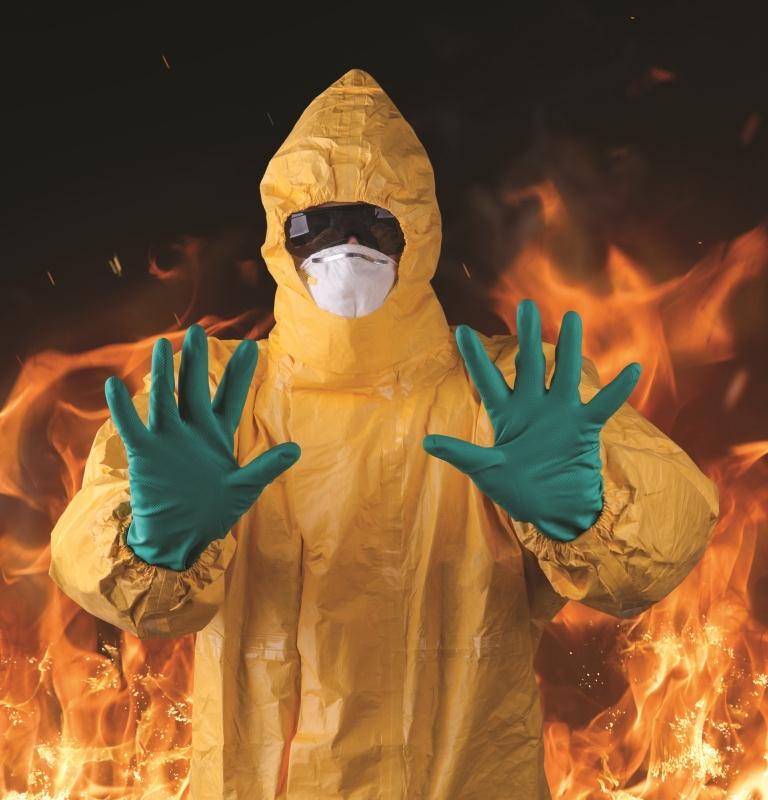In late 2015, Liberia was declared Ebola-free. On the frontline of the fight against the disease was Cyvette Gibson, the Mayor of Paynesville, Liberia’s largest district.
Gibson (pictured right) personifies style and confidence, accompanied by a warm, infectious smile.
FORBES WOMAN AFRICA caught up with her in Johannesburg, South Africa, on the sidelines of the 2015 Africities Summit.
For the last three years, Gibson has served as the Mayor of Paynesville, a city with a population of 400,000. The Ebola outbreak was the toughest test she has yet faced. The virus killed more than 11,000 in West Africa, with around 4,800 of those from Liberia.

Mayor of Paynesville, Cyvette Gibson
Loading...
“It felt like an enemy had sort of descended upon us in the middle of the night. We didn’t even know what this enemy was, all we knew was that it was wiping people out,” says Gibson.
“The most painful thing was watching my citizens die and being unable to assist initially and eventually figuring out that a simple thing such as a touch – which is something all human beings do, no matter what culture, to console someone when they’re ill – we could no longer do.”
When the outbreak was at its peak, Gibson faced the problem head on and started by cleaning the streets. She enlisted the help of everyone she could find. Everyone, even the homeless and drug addicts, who had helped to rid her town of litter.
Gibson deployed block leaders to educate people, monitor their behavior and trace potential Ebola victims before the disease spread further. In addition, there were posters on every street corner showing the dangers and symptoms of Ebola. Radio jingles, television commercials and community vehicles blared with information 24 hours a day, throughout the city.
Ebola was a fight Gibson fought until the very end.
Outside of every public building in her city are washing stations; it is compulsory to wash your hands thoroughly with chlorinated or soapy water before entering.
Gibson’s sanitizing campaign ensured community leaders were around to supply information and medical services to locals, while monitoring signs of the virus spreading.
“Community leaders had a constant engagement with the people, every morning they would go house-to-house, check people’s temperatures, make sure all the names are on the list, their ages and check for unfamiliar people walking about the areas,” says Gibson.
“The power was within the community.”
Part of Ebola’s danger was that it could be contracted with just one touch, as a result many families lost their breadwinners.
In some instances, according to Gibson, a mother would have to sit in a room and watch her child die without being able to touch the child for fear of contracting the disease.
“Our healthcare workers were dying like flies. We already lacked doctors and nurses and we were just losing more. It was a very difficult time but we had to put our boots on and get onto the streets.”
Despite being the most difficult period in her career, Gibson believes it made her stronger.
Alongside her on the frontline in the war were many international organizations who helped with medical supplies, awareness campaigns and funding.
“We are also very thankful to our families and friends in organizations in the diaspora for their support and solidarity during this time. If it hadn’t been for them, we would not have reached where we are today.”
Gibson is the youngest mayor to serve in Liberia. When not buried by paperwork in her office, you’ll find her on the streets engaging with the community. She believes in leading by example and says that constantly engaging with her citizens builds a strong and united community.
“If I expect people to do something, I must exemplify it and exhibit the same behavior. Also, as a leader, I truly believe one must be humble, especially when you are serving the people,” she says.
Going forward, Gibson has formed partnerships with organizations around Liberia which will continue to assist in building a stable healthcare system. With donations from abroad, she has managed to increase capacity within community clinics and has trained more nurses and doctors.
“I can say now we can respond timeously to anything, even if we have an outbreak, we are able to deal with it by containing it as we already know the signs and symptoms. We still have a long way to go but we are headed in the right direction,” she says.
Gibson also plans to support neighboring countries still recovering from the disease.
With Gibson leading the charge, even Ebola didn’t stand a chance.
Loading...
